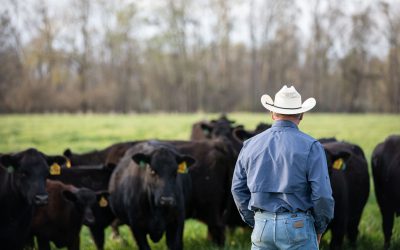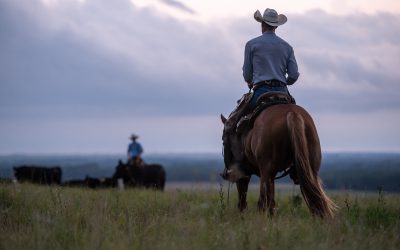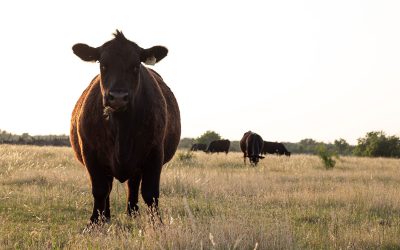
Mistakes, cheats — we catch ’em all
June 6, 2011
I’m one of those people who believe in the intrinsic good of mankind. I’d like to think that everybody embodies the characteristics of honesty and trustworthiness. I think many folks on our staff tend to lean in that direction, too. In fact, our entire program is built on integrity.
But luckily we’ve got more than a few realists on our payroll who know sometimes people—even the good-intentioned, who want to be 100% true and honest—make mistakes. They also know that there are some people in this world who will cheat if they think it will get them ahead. *Gasp*
So today’s myth is devoted to those colleagues of mine who protect this brand, maintaining its value, all the way back to you cattlemen and women.
Myth—CAB can’t know if a licensee is selling the real thing—nobody could track 800 million pounds from plant to plate.
Fact—You can and we do. In fact, we have a whole division devoted to just that. They’re the fine folks who work in brand assurance and they’re tough, they’re diligent, they’re relentless. (They’re also really nice people, but they aren’t going to take any guff from people who use our logo, trying to pass off an imposter as the real,USDA-stamped , consistent Certified Angus Beef ® .)
Our licensed packers report how many cattle were certified any given week and how many of those pounds were sold as branded product. From those starting numbers, we know how much CAB meat was available. Then every link in the chain from there on out reports how much they sold and to whom, from the further processors to distributors to restaurants and retailers. Every single pound is tracked.
From there, we—and by “we” I really mean those brand assurance team members—watch for red flags. If the distributors report higher sales of CAB than what’s possible based on the packer data, we’ve got a problem. If an establishment is advertising CAB on their menu, but hasn’t purchased any branded product in months, we’ve got a problem.
The main issue? If they’re not selling the tried-and-true CAB product when they say they are, what are they selling? If a customer gets that product, thinking it’s the real McCoy, and has a bad experience, they’ll equate that with the brand. They won’t be willing to pay more the next time. (That’s bad news because the whole brand depends on pull-through demand, which ultimately rewards producing for raising the very best.)
Once we get to digging, often we’ll find it was a reporting error or a misunderstanding. The issue is cleared up and we move on. Sometimes we find a real, bona fide cheat. Somebody who sees the brand has value and thinks he or she can get by with using it to boost sales, while using a cheaper, inferior product.
Those people are sorely mistaken. We aren’t about to let somebody else drag our reputation through the mud…..afterall, that’s really all we own.
May your bottom line be filled with black ink,
~Miranda
If you want to know more about brand assurance, read “Trust but verify.” It”s a column authored by the division”s director.
You may also like
Progress from small steps
Every day is a chance to learn and get better. Thousands of others like my new friends in Alabama are taking steps to meet the shifts in consumer demand, and to know more. Small steps in the right direction can start now. Even if it’s just recording a snapshot of where you are today, a benchmark for tomorrow.
Not perfect, but working to get better
The CAB Cattleman Connection team heard its name called more than once in the virtual ceremonies, and each time came a sense of personal accomplishment, but even better: confirmation that we’re getting better at our craft. I hope that means we’re doing a better job for you.
Beefed up findings
Frank Mitloehner presents his findings on the animal ag sector’s impact on global warming. He explains how cattle counterbalance other fossil fuel sectors, proving that cattle are a solution and not a threat.



